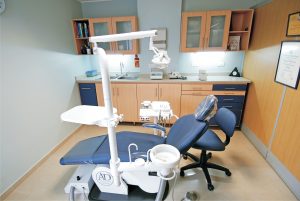 By: Jeff Cohen
By: Jeff Cohen
Wanna know how often we’re asked whether the laws re healthcare marketing are really enforced? How often we hear “Everyone is doing it.” “Surely they [regulators] understand that every healthcare business has to market its services and item,” we’re told. And when we start to educate people re the state and federal laws that pertain to marketing healthcare items and services (INCLUDING those for which payment isn’t made by a state or federal healthcare program), their impatience and intolerance is palpable.
Take a look at the latest report from the Department of Justice guilty plea from someone who marketed the services of a genetic testing lab. He admitted being guilty of receiving over $300K in kickback money (presumably in the form of marketing fees) and now faces (1) a $250K fine, (2) returning all the money he received, and (3) five years in prison!
Marketing any healthcare service or item is at the tip of the sword in terms of regulatory investigation and enforcement. It’s that simple. And so when your lawyers drag you through laws like the Anti-Kickback Statute, the Florida Patient Brokering Act, the federal health insurance fraud law, the bona fide employee exception, the personal services arrangement and management contract safe harbor and EKRA, thank them! And expect nothing less. If you do ANYTHING at all in the neighborhood of marketing a healthcare item or services, the first place to start is: meet with a very experienced healthcare lawyer who is not learning on your dime. And have them take a couple hours to educate you about the laws, the options and the risks of each one. And once you’ve done that, ask them what more you can do to reduce your risk, for instance—Continue reading
 By: Chase Howard
By: Chase Howard


 By:
By: 
 By:
By: 
 By:
By: 


 By:
By: 
 Three family members involved in owning an addiction treatment center and/or a toxicology lab were charged in July with patient brokering and money laundering in an alleged scheme involving roughly $2 Million. The allegations arise out of a complex corporate enterprise involving at least four companies and some common ownership between the treatment center and lab. While it’s premature to assume that the defendants did anything illegal, there are some interesting things in this case:
Three family members involved in owning an addiction treatment center and/or a toxicology lab were charged in July with patient brokering and money laundering in an alleged scheme involving roughly $2 Million. The allegations arise out of a complex corporate enterprise involving at least four companies and some common ownership between the treatment center and lab. While it’s premature to assume that the defendants did anything illegal, there are some interesting things in this case:
 By:
By: